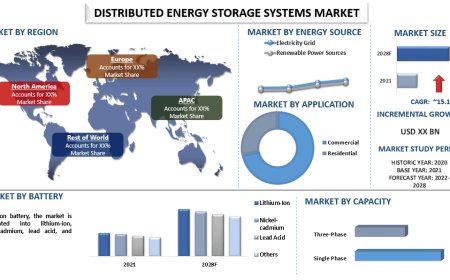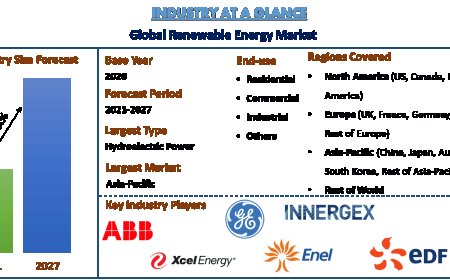What’s the Difference Between Getting Pre-Qualified and Pre-Approved for a VA Home Loan?
Pre-approval confirms verified finances and VA eligibility; unlike pre-qualification, it strengthens your position when buying a home.

In the world of home buying, the terms pre-qualified and pre-approved are often thrown around as if they mean the same thing. They dont. For veterans and active-duty service members considering a VA home loan, understanding this distinction mattersa lot. When you're preparing to dive into the housing market, knowing whether you're simply testing the waters or ready to swim can make or break your offer.
Lets unpack both terms, explain their relevance to VA loans, and explore how each step positions you in todays competitive real estate landscape.
Pre-Qualification Is a Preliminary Snapshot
Pre-qualification is like a casual conversation with a lender. You provide general information about your financial situationyour income, debts, and credit estimateand based on that, they give you a ballpark idea of what you might be eligible to borrow.
It's quick. Its informal. And it requires very little documentation.
Think of it as the "rough draft" of your borrowing power. The lender doesnt verify your information or pull a full credit report. Instead, they may perform a soft credit check and rely on what you tell them. This can be helpful if you're just starting your journey or want an early sense of budget before looking at properties.
Pre-Approval Is the Real Deal
When you get pre-approved for a VA home loan, the process ramps up. You submit actual financial documentspay stubs, tax returns, bank statements, and your Certificate of Eligibility (COE). The lender conducts a hard credit inquiry and reviews your debt-to-income ratio, employment history, and residual income.
Theyre not guessing anymoretheyre evaluating.
Once approved, the lender issues a pre-approval letter that states exactly how much you can borrow. This document proves to sellers and real estate agents that you're financially capable and serious about buying. It shows your income and credit have already been vetted and that a VA lender is ready to support your purchase.
The Power of Pre-Approval in a Competitive Market
In fast-moving markets, where multiple buyers may compete for the same property, sellers dont have time to gamble. A pre-approval letter gives you leverage. It tells them youve done your homework, your financing is ready, and your offer wont fall through due to loan issues.
Pre-qualification, while helpful early on, doesnt carry the same weight. Sellers may hesitate to accept an offer backed only by a vague estimate of borrowing power.
The VA Loan Angle
VA loans offer unique benefits: zero down payment, no private mortgage insurance, and favorable terms for eligible borrowers. But lenders still need to confirm that you meet the VA's guidelines.
Your Certificate of Eligibility (COE) plays a critical role here. During pre-qualification, your service information might not even be reviewed. In pre-approval, your COE is a mustit proves to the lender that you qualify for a VA loan based on military service history.
Without pre-approval, the lender hasnt officially confirmed your eligibility, which means your loan estimate is based more on assumption than fact.
Documentation Differences That Matter
Heres where the paperwork becomes real. For pre-qualification, you might not need to submit anything at all. You just tell the lender your financial details.
For pre-approval, youll need:
-
Certificate of Eligibility (COE)
-
Photo ID
-
Income documentation (W-2s, pay stubs, LES)
-
Tax returns
-
Credit history
-
Bank statements
The lender uses these to validate your financial status. Once confirmed, they offer you a conditional green light to proceed with house hunting. And while its not a final loan approval, it brings you one major step closer.
Time and Credit Impact
Pre-qualification is faster and doesnt affect your credit. It typically involves a soft pull, if any, and can happen within minutes.
Pre-approval takes a bit longeroften 24 to 72 hoursbecause the lender needs time to review documents and perform a hard credit inquiry. This inquiry may cause a slight dip in your score, but its a normal and necessary part of the home buying process.
If you're serious about purchasing soon, the brief delay for pre-approval is more than worth the confidence it brings.
Which Should You Choose First?
If youre exploring your options or want to test your budget range, pre-qualification is a good first step. It helps you speak with lenders, compare offers, and get a basic sense of your buying power without committing.
But once youre ready to shop seriously and make offers, pre-approval is essential. It positions you as a prepared buyer and helps ensure your financing wont hold up the process.
Pre-Qualification Can Lead to Pre-Approval
One often leads to the other. Many lenders begin with pre-qualification to build rapport and gather preliminary info. Once you're ready to move forward, they request your documents and move into the pre-approval process.
By starting with pre-qualification, you ease into the mortgage conversation without pressure. From there, if your finances and eligibility align, the lender transitions you toward full pre-approval.
Real-World Example
Imagine you're viewing two buyers placing offers on the same property.
Buyer A is pre-qualified. They've spoken with a lender, shared their income details, and have a loose idea of what they can affordbut nothing official.
Buyer B is pre-approved. Their lender has issued a letter that confirms income verification, credit evaluation, and loan eligibility. The seller reviews both offers. Which one do they trust more?
Almost alwaysBuyer B.
Conclusion
Understanding the difference between being pre-qualified and being pre-approved for a Get Pre-Approved for a VA Home Loan isnt just about terminologyits about readiness, credibility, and strategic timing. Pre-qualification gives you a starting point. Pre-approval gives you momentum.
If you're serious about buying and want to use the full strength of your VA benefits, pre-approval is the step that shows you're ready to move forward with confidence, clarity, and purpose.





































